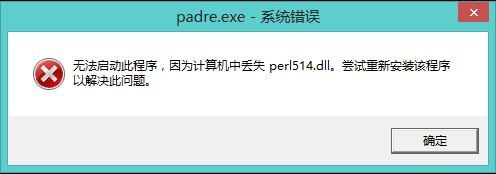4.7. Notes on Lexical (my) VariablesThose lexical variables can be used in any block,not merely in a subroutine's block. For example,they can be used in the block of an if,while,or foreach: foreach (1..10) {
my($square) = $_ * $_; # private variable in this loop
print "$_ squared is $square./n";
} The variable $square is private to the enclosing block; in this case,that's the block of the foreach loop. If there's no enclosing block,the variable is private to the entire source file. For now,your programs aren't going to use more than one source file,so this isn't an issue. But the important concept is that the scope of a lexical variable's name is limited to the smallest enclosing block or file. The only code that can say $square and mean that variable is the code inside that textual scope. This is a big win for maintainabilityif the wrong value is found in $square,the culprit will be found within a limited amount of source code. As experienced programmers have learned (often the hard way),limiting the scope of a variable to a page of code,or to a few lines of code,accelerates the development and testing cycle. Also,the my operator doesn't change the context of an assignment: my($num) = @_; # list context,same as ($num) = @_;
my $num = @_; # scalar context,same as $num = @_; In the first one,$num gets the first parameter,as a list-context assignment; in the second,it gets the number of parameters,in a scalar context. Either line of code could be what the programmer wanted; you can't tell from that one line alone,so Perl can't warn you if you use the wrong one. (Of course,you wouldn't have both of those lines in the same subroutine since you can't have two lexical variables with the same name declared in the same scope; this is just an example.) When reading code like this,you can always tell the context of the assignment by seeing what the context would be without the word my. So long as we're discussing using my( ) with parentheses,remember that without the parentheses,my only declares a single lexical variable:[*]
my $fred,$barney; # WRONG! Fails to declare $barney
my($fred,$barney); # declares both Of course,you can use my to create new,private arrays as well:[ my @phone_number; Any new variable will start out empty: undef for scalars or the empty list for arrays. |


 1. 如何去重 #!/usr/bin/perl use strict; my %hash; while(...
1. 如何去重 #!/usr/bin/perl use strict; my %hash; while(... 表的数据字典格式如下:如果手动写MySQL建表语句,确认麻烦,...
表的数据字典格式如下:如果手动写MySQL建表语句,确认麻烦,... 巡检类工作经常会出具日报,最近在原有日报的基础上又新增了...
巡检类工作经常会出具日报,最近在原有日报的基础上又新增了...